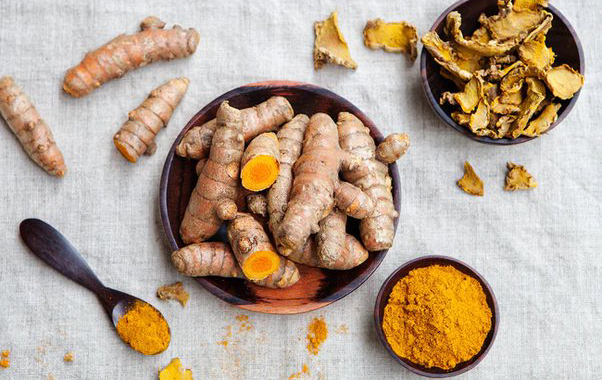

How can turmeric and its derivatives assist the immune gadget? Turmeric (Curcuma longa) and its active compounds, particularly curcumin, have gained attention for their potential benefits in supporting the immune system. Here’s how turmeric and its derivatives may assist the immune system:
Anti-Inflammatory Properties
Curcumin, the main bioactive compound in turmeric, has strong anti-inflammatory effects. Chronic inflammation is linked to many immune-related conditions, and by reducing inflammation, curcumin helps maintain a balanced immune response. It inhibits pro-inflammatory cytokines like TNF-α, IL-6, and IL-1, which are key players in the body’s inflammatory response.
Antioxidant Activity
Curcumin is a powerful antioxidant that helps neutralize free radicals, protecting immune cells from oxidative stress. By boosting the body’s antioxidant defense mechanisms (such as increasing levels of glutathione), curcumin can help enhance immune cell function and overall resilience.
Enhancing T and B Cells
Some studies suggest that curcumin can enhance the function of T cells, B cells, macrophages, and other immune cells. T cells and B cells are essential for adaptive immunity, with T cells targeting and destroying infected cells, while B cells produce antibodies.
Modulating the Gut Microbiome
The gut plays a crucial role in immune regulation, and curcumin has been shown to have prebiotic-like effects, promoting the growth of beneficial bacteria. A healthy gut microbiome contributes to a well-functioning immune system by regulating immune cell activity and producing anti-inflammatory compounds.
Antiviral and Antibacterial Effects
Turmeric has been shown to exhibit antiviral and antibacterial properties. This helps the immune system by directly combating pathogens and reducing the overall burden on the immune system. For instance, studies suggest that curcumin can inhibit the replication of certain viruses, including influenza, by interfering with viral proteins.
Regulation of Immune Response
Curcumin modulates the immune response by balancing the activity of immune cells, potentially preventing an overactive or underactive immune response. This balance is crucial in preventing autoimmune diseases, where the immune system mistakenly attacks the body, and in preventing chronic infections by boosting immune function when necessary.
Activation of Immune Pathways
Curcumin has been shown to activate various signaling pathways related to the immune system. For example, it can activate pathways such as nuclear factor kappa B (NF-κB) and mitogen-activated protein kinases (MAPKs), which are involved in immune response regulation and inflammation control.
Support Against Autoimmune Conditions
Due to its anti-inflammatory and immune-regulatory effects, curcumin may help in managing autoimmune diseases like rheumatoid arthritis and multiple sclerosis, where the immune system mistakenly attacks healthy tissue.
Ways to Consume Turmeric for Immune Support:
- Turmeric Powder: Adding turmeric powder to meals or making turmeric tea.
- Curcumin Supplements: More concentrated forms like curcumin supplements, often combined with black pepper (piperine) to enhance absorption.
- Golden Milk: A mix of turmeric, black pepper, and milk (plant-based or regular).
While turmeric and curcumin show potential in supporting the immune system, it’s important to consult with a healthcare provider, especially if taken in large amounts or in supplement form, as interactions with medications may occur.





